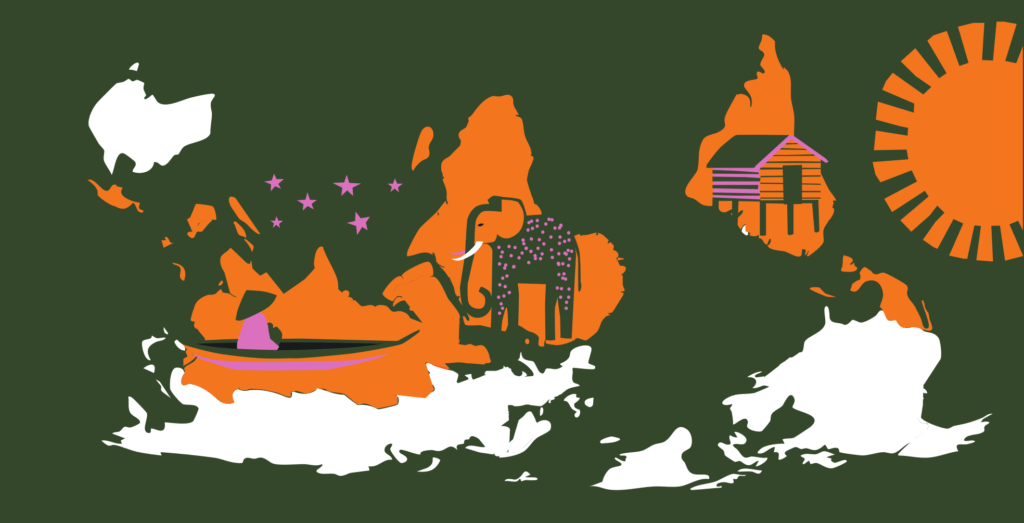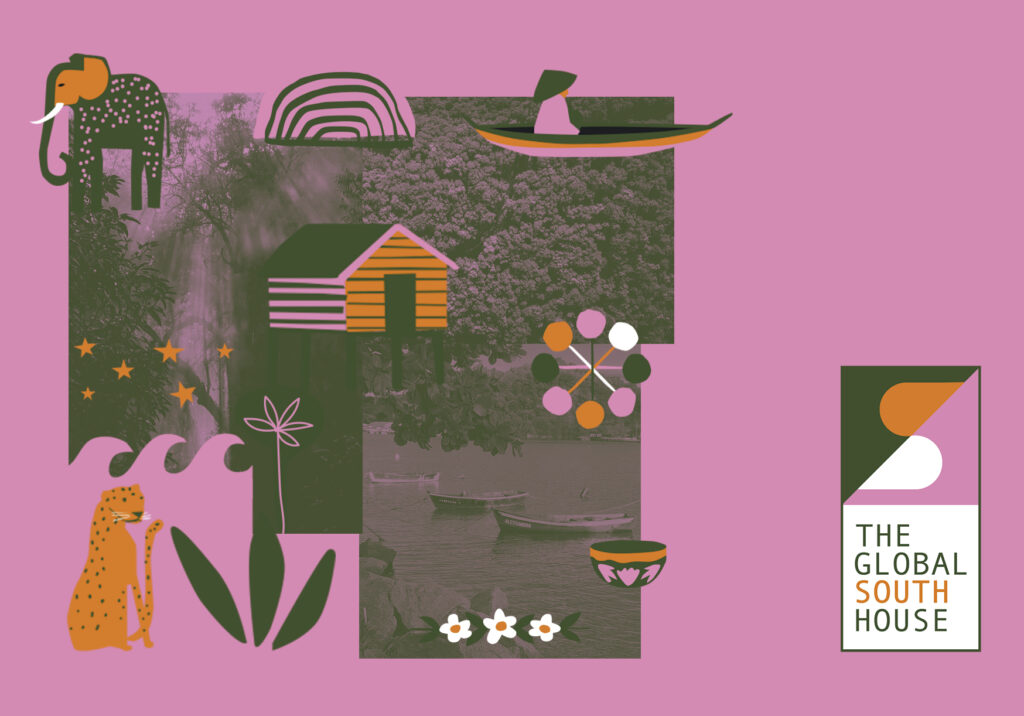Despite multiple warnings and negotiations, the climate crisis has not yet sparked the kind of bold, innovative movements we urgently need. Financing for climate and nature continues to flow through rigid channels, reinforcing traditional power structures rather than breaking them. Too often, the communities in the Global South who hold generations of knowledge about how to live in balance with nature remain excluded from decision-making and are underfunded in practice.
Why not dare to walk fairer paths? Paths that already exist, rooted in generations of knowledge, forged in proximity to the toughest challenges, and sustained in harmony with nature. Why do these models remain largely invisible in global debates?
It is from this questioning that The Global South House (TGSH) emerges, a joint initiative of Alianza Socioambiental Fondos del Sur (Socio-environmental Funds of the Global South) and Rede Comuá, committed to changing this imbalance and transforming financing into a tool for socio-environmental justice. TGSH looks directly at the “architecture of climate and nature financing” from and for the Global South, showing that mechanisms already exist to channel resources to movements, communities, and people on the frontlines.
Building Together: A Collective Origin
The Global South House materialises from a collective endeavour. Its first edition will take place in Belém do Pará, in the heart of the Brazilian Amazon, during COP30. It’s the result of collaboration between networks, funds, and allies who share the belief that only collective efforts can create the futures we need.
Alongside Alianza, a pioneering intercontinental network of socio-environmental justice funds, and Rede Comuá, a Brazilian network of independent grantmaking organisations supporting grassroots action, the COP30 edition counts on strategic partners including the #ShiftThePower movement and the Community Funds of the Brazilian Amazon Network (Rede de Fundos Comunitários da Amazônia Brasileira), two powerful forces that enrich both the design and the broader conversations the platform seeks to advance.
In practice, this has meant a process of co-creation at every stage. Even before its debut at COP30, TGSH convened a series of Road to COP30 gatherings, bringing together members across the networks. These spaces became opportunities to reflect on the role of philanthropy, to imagine a more just financial architecture, to examine the global negotiations ahead, and to co-write The Global South House Manifesto, soon to be shared with the world.
The COP30 program itself was shaped through an open call for proposals, followed by a curatorial process that ensured diversity, representativity, and territorial grounding, embodying the values it promotes.

Towards a New Financial Architecture
What does it mean to rethink the “architecture” of climate and nature financing? For TGSH, it means questioning the structures and institutions that govern how resources are mobilised and distributed and offering an alternative.
“Our goal is to place solutions from the South and for the South at the centre of global debates on financing for climate, nature, and people,” says Juliana Tinoco, Executive Coordinator of Alianza Socioambiental Fondos del Sur and one of the driving forces behind the initiative.
Socio-environmental justice funds in the Global South already embody a different model in practice. Flexible, trust-based, and rooted in local territories, they channel resources from diverse sources to help promote local solutions by and for communities, responses that not only address urgent crises but also regenerate futures. These range from agroecology and food sovereignty initiatives to youth-led advocacy, feminist organising and support for Indigenous peoples, forest and rural communities, and urban peripheries leadership.
Yet the scale remains insufficient compared to the magnitude of the challenges. That is why TGSH insists on innovative arrangements that involve multiple actors – funds, movements, philanthropies, and donors – working collaboratively to unlock larger flows of resources while ensuring accessibility and equity.

From Vision to Action: Local Solutions at the Centre
This vision will come to life through a seven-day program of debates, exchanges, and collaborative sessions in Belém. The agenda reflects the pluralism of the South, featuring dialogues on gender and intersectionality, food systems and agroecology, community philanthropy and territorial approaches, explorations of how technology can support socio-environmental justice, among other topics.
From November 13 to 20, 2025, the first edition of The Global South House will be more than just a venue during COP30. It represents the beginning of a long-term effort to reorient climate and nature financing towards justice, equity, and effectiveness. Its physical space, hosted at Canto Coworking in Belém’s historic centre, will be where all activities take place. The program will feature simultaneous interpretation in English, Spanish, and Portuguese, and will be livestreamed to ensure global participation. The full agenda will be announced soon, along with information on registration for in-person events.
“Mechanisms such as socio-environmental justice funds are examples of solutions for a more just and community-aligned approach to climate and nature financing. At COP30, the debate on financing will be central, and these philanthropic actors from the Global South have much to contribute,” says Jonathas Azevedo, Executive Director of Rede Comuá.
More than a series of panels, TGSH will serve as a living laboratory of solutions, a space where ideas are exchanged, partnerships are forged, and the future of financing is imagined from the ground up. It will also serve as a bridge, connecting socio-environmental funds with global donors and allies, inviting them into a relationship of trust, reciprocity, and shared purpose.

Q4 2025 Climate Solutions Magazine
We encourage you to read this edition of the F20 Climate Solutions Magazine in full. The articles focus on the transformative potential that future-forward, bold policy can have.
Expand the preview below and immerse yourself in these thought-provoking articles.